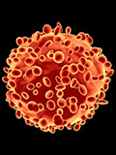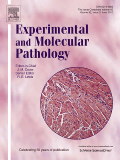
Annual Review of Pathology-Mechanisms of Disease
Scope & Guideline
Bridging Theory and Practice in Disease Mechanisms
Introduction
Aims and Scopes
- Mechanisms of Disease Pathogenesis:
The journal focuses on elucidating the underlying mechanisms of various diseases, including cancer, infectious diseases, and genetic disorders, providing insights into how these mechanisms contribute to disease progression and potential therapeutic targets. - Translational Research:
A significant emphasis is placed on bridging basic research with clinical applications, facilitating the translation of laboratory findings into clinical practice to improve diagnosis, treatment, and prevention strategies. - Innovations in Diagnostic Techniques:
The journal explores advancements in diagnostic methodologies, including imaging techniques, biomarker discovery, and molecular profiling, which enhance the accuracy and efficiency of disease detection. - Interdisciplinary Approaches:
The publication encourages interdisciplinary research that integrates pathology with fields such as immunology, genetics, and bioinformatics, promoting a holistic understanding of disease mechanisms. - Emerging Therapeutics:
The journal highlights novel therapeutic strategies, including precision medicine and targeted therapies, which are informed by a deeper understanding of disease biology, to improve patient outcomes.
Trending and Emerging
- Artificial Intelligence in Pathology:
Recent publications have increasingly focused on the application of artificial intelligence and machine learning techniques in pathology, particularly for improving diagnostic accuracy and personalizing treatment strategies. - Role of the Microenvironment in Disease:
There is a growing interest in understanding how the tumor microenvironment and other tissue microenvironments influence disease progression, particularly in cancer and inflammatory diseases. - Epigenetics and Disease Mechanisms:
Research on epigenetic modifications and their roles in disease pathogenesis is gaining traction, reflecting the recognition of epigenetics as a crucial factor in gene expression regulation and disease development. - Neuroinflammation and Neurodegeneration:
The interplay between neuroinflammation and neurodegenerative diseases, particularly in the context of conditions like Alzheimer's and Parkinson's disease, has emerged as a significant area of focus, highlighting the importance of inflammation in neurological health. - Metabolic Pathways in Disease:
An increasing number of studies are examining the links between metabolic dysregulation and various diseases, including cancer and chronic inflammatory conditions, emphasizing the role of metabolism in pathophysiology.
Declining or Waning
- Classic Pathological Techniques:
There has been a noticeable decrease in publications focusing on traditional pathological methods such as histopathology and microscopy, as newer techniques and technologies have emerged to provide more detailed insights into disease mechanisms. - General Disease Overviews:
Papers that provide broad, non-specific overviews of diseases without a focus on specific mechanisms or advancements are becoming less common, indicating a shift towards more specialized and detailed analyses. - Non-Molecular Approaches:
Research that emphasizes non-molecular aspects of disease, such as purely clinical observations or epidemiological studies without a focus on underlying mechanisms, appears to be declining in favor of more molecularly-driven investigations.
Similar Journals

International Journal of Clinical and Experimental Pathology
Advancing Knowledge in Pathology and BeyondInternational Journal of Clinical and Experimental Pathology, published by E-CENTURY PUBLISHING CORP, serves as a vital resource for professionals in the field of pathology. With its ISSN 1936-2625, the journal has positioned itself within the competitive landscape of medical journals, achieving commendable rankings in Scopus, particularly in the categories of Pathology and Forensic Medicine (Rank #98/185) and Histology (Rank #38/58). Although its coverage in Scopus has been discontinued, the journal’s past contributions from 2009 to 2017 continue to be a touchstone for researchers interested in advancing their understanding of clinical and experimental pathology. The open-access format ensures accessibility to a wide audience, fostering collaboration and education in this essential medical discipline. By bridging clinical research and experimental findings, this journal plays a crucial role in disseminating knowledge and enhancing practices within pathology, making it an indispensable tool for researchers, professionals, and students alike.

INTERNATIONAL JOURNAL OF EXPERIMENTAL PATHOLOGY
Advancing Knowledge in Experimental PathologyINTERNATIONAL JOURNAL OF EXPERIMENTAL PATHOLOGY, published by Wiley, is a leading peer-reviewed journal dedicated to the field of experimental pathology. With an ISSN of 0959-9673 and E-ISSN 1365-2613, the journal has been a vital resource for researchers and professionals since its inception in 1990, covering a broad spectrum of topics within pathology, cell biology, and molecular biology. The journal's relevancy is underscored by its Q2 ranking in Pathology and Forensic Medicine and Q3 rankings in both Cell Biology and Molecular Biology, as of 2023, reflecting its significant contribution to the scientific community. Although it does not currently offer open access options, readers can benefit from its insightful research articles and reviews that guide advancements in diagnostic pathology and therapeutic strategies. As the journal continues to evolve, it remains committed to facilitating the exchange of innovative ideas and findings that drive progress in experimental pathology and related fields, making it an indispensable platform for scientists, clinicians, and students alike.

Annual Review of Phytopathology
Illuminating trends in plant science and medicine.Annual Review of Phytopathology, published by ANNUAL REVIEWS, is an esteemed journal that has been at the forefront of the field since its inception in 1973. With a focus on both Plant Science and Medicine, the journal holds a prestigious Q1 ranking in both categories for 2023, reflecting its influence and significance in the academic community. The journal features comprehensive review articles that encapsulate significant advancements and emerging trends in phytopathology, providing valuable insights for researchers, professionals, and students alike. Its rigorous peer-review process ensures the highest quality of publication, making it essential for anyone seeking to stay informed on critical issues affecting plant health and related disciplines. With an impressive Scopus ranking of #10 out of 516 in Agricultural and Biological Sciences, Annual Review of Phytopathology remains a vital resource for the dissemination of cutting-edge knowledge, fostering innovation and collaboration within the field.

EXPERIMENTAL AND MOLECULAR PATHOLOGY
Unraveling molecular mysteries in pathology.EXPERIMENTAL AND MOLECULAR PATHOLOGY, a distinguished journal published by Academic Press Inc Elsevier Science, is recognized for its significant contributions to the fields of pathology, clinical biochemistry, and molecular biology. With an ISSN of 0014-4800 and an E-ISSN of 1096-0945, this journal provides a platform for the dissemination of high-quality research articles, reviews, and experimental studies that deepen our understanding of disease mechanisms and diagnostic pathways. Since its inception in 1962 and through its converged publication years, the journal has consistently maintained a solid impact in the academic community, achieving high Scopus rankings—ranked #15 in the field of Pathology and Forensic Medicine and #22 in Clinical Biochemistry, showcasing a commendable percentile standing of 93rd and 81st respectively in 2023. The journal is accessible through various academic libraries and institutional subscriptions, making it an essential resource for researchers, professionals, and students committed to advancing knowledge in these critical areas. With a categorization that includes Q1 rankings in Pathology and Forensic Medicine, EXPERIMENTAL AND MOLECULAR PATHOLOGY stands as a prominent venue for pioneering scientific inquiry and collaborative advancement in molecular diagnostics and therapeutic strategies.

PATHOLOGY INTERNATIONAL
Empowering Clinicians and Researchers with Cutting-Edge KnowledgePATHOLOGY INTERNATIONAL, published by WILEY, stands as a distinguished journal in the field of pathology and forensic medicine, serving as an essential resource for researchers, clinicians, and students alike. With its ISSN 1320-5463 and E-ISSN 1440-1827, PATHOLOGY INTERNATIONAL has established itself since its inception in 1951, navigating through an evolving landscape in medical science with insights and breakthroughs up to 2024. It holds a commendable Q2 ranking in both the Medicine (miscellaneous) and Pathology and Forensic Medicine categories, indicating its robust influence and quality within these fields, as evidenced by its placement in the 70th percentile of Scopus rankings. While currently not an open-access journal, it provides access options that ensure valuable research remains available to the academic community. PATHOLOGY INTERNATIONAL commits to advancing the discipline through pioneering research articles, comprehensive reviews, and expert opinions that push the boundaries of understanding in pathology, thereby supporting the enhancement of diagnostic and therapeutic practices.

Malaysian Journal of Pathology
Advancing knowledge in pathology and medicine.Malaysian Journal of Pathology, published by the MALAYSIAN JOURNAL PATHOLOGY, stands as a pivotal resource in the fields of pathology and medicine, contributing rich insights since its inception in 1979. This peer-reviewed journal, based in Malaysia, is dedicated to disseminating original research, review articles, and case studies that advance the understanding of disease mechanisms and diagnostics. With a current impact factor reflecting its ranked positioning—Q4 in Cell Biology, Q4 in Histology, and Q3 in both Miscellaneous Medicine and Pathology & Forensic Medicine—this journal serves as an essential platform for researchers, clinicians, and students alike. Although it operates without open access, its scholarly rigor and contributions are well recognized, holding ranks such as #84 in Pathology and Forensic Medicine according to Scopus. The Malaysian Journal of Pathology is committed to fostering innovation and excellence in medical research, making it an invaluable tool for professionals seeking to stay abreast of significant advancements in the pathology domain.

BIOCHIMICA ET BIOPHYSICA ACTA-MOLECULAR BASIS OF DISEASE
Decoding Disease at the Molecular LevelBIOCHIMICA ET BIOPHYSICA ACTA-MOLECULAR BASIS OF DISEASE, published by Elsevier, is a pivotal journal in the fields of Molecular Biology and Molecular Medicine, recognized for its high impact factor and robust ranking within Scopus categories, holding prestigious quartiles in Q1 for both disciplines as of 2023. With ISSN 0925-4439 and E-ISSN 1879-260X, this journal fosters cutting-edge research from 1990 to 2025, addressing the critical molecular mechanisms underlying human diseases. Its wide-ranging scope includes original research articles, reviews, and advanced theoretical insights, serving as an essential resource for researchers, clinicians, and students alike. The journal is based in the Netherlands, at RADARWEG 29, 1043 NX AMSTERDAM, and while it does not currently offer an open-access option, it continues to maintain a strong presence in the scientific community, enhancing our understanding of molecular processes in health and disease.

MedComm is a distinguished Open Access journal published by Wiley, located in the United States. Since its inception in 2020, it has rapidly established itself as a leading platform for cutting-edge research in the fields of Biochemistry, Cell Biology, Drug Discovery, Genetics, Immunology and Allergy, and Oncology, achieving a prestigious Q1 category ranking across multiple disciplines in 2023. MedComm is committed to providing a rigorous and transparent peer-review process, ensuring the publication of high-quality articles that advance the frontiers of medical science. With its remarkable Scopus ranking, the journal serves as an invaluable resource for researchers, professionals, and students looking to stay abreast of important developments in the life sciences. The open access model facilitates widespread dissemination of scholarly work, fostering collaboration and innovation within the global scientific community. Researchers interested in submitting their work or exploring the latest findings are encouraged to engage with this pivotal journal during the converged years from 2020 to 2024.

VIRCHOWS ARCHIV
Advancing the Frontiers of Medicine and PathologyVirchows Archiv, published by Springer, is an esteemed journal dedicated to the fields of Medicine and Pathology, featuring high-quality research from various domains including Cell Biology and Molecular Biology. With its inception dating back to 1947, Virchows Archiv has been a pivotal platform for advancing the understanding of pathological and forensic medicine. As evidenced by its impressive Scopus rank, placing it within the top 15% of journals in Pathology and Forensic Medicine, it continues to maintain a strong presence with a Q1 classification in its category as of 2023. Although it does not offer Open Access options, the journal remains critical for researchers and professionals seeking to publish and access pioneering findings that can impact clinical practices and the academic community. The journal’s rigorous peer-review process ensures that only the highest quality research is disseminated, making it an essential resource for those engaged in the ever-evolving fields of health and biological sciences.

INTERNATIONAL JOURNAL OF HUMAN GENETICS
Exploring the Depths of Genetic KnowledgeINTERNATIONAL JOURNAL OF HUMAN GENETICS is a distinguished publication dedicated to advancing knowledge in the fields of genetics and molecular biology. Published by KAMLA-RAJ ENTERPRISES, this journal explores critical developments and research findings from 2008 to 2016, though its coverage in Scopus has since been discontinued. With an ISSN of 0972-3757 and an E-ISSN of 2456-6330, the journal aimed to foster scholarly dialogue and serve as a resource for researchers, professionals, and students engaged in human genetics. While the journal holds a modest ranking in categories such as Biochemistry and Genetics, it remains a vital source for exploring niche topics within the realm of human genetics. Researchers interested in genetic screening, gene therapy, and clinical genetics will find valuable insights herein. Despite its pause in indexing, the journal continues to contribute to the academic discourse by disseminating critical research that bridges gaps in understanding human genetics.